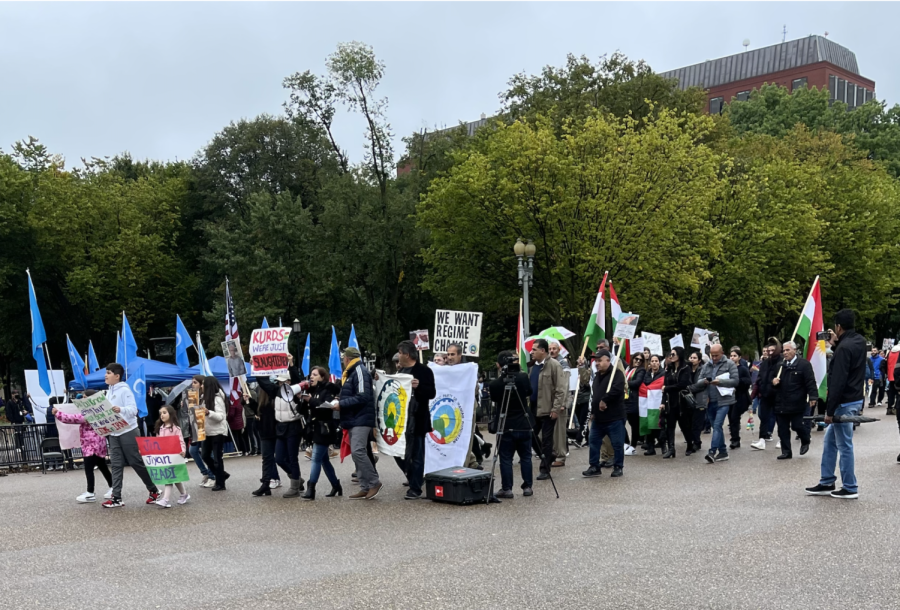Mahsa Amini: An Influential Fight for Freedom and Why It’s Astonishing
Protests next to the White House in Washington D.C. In front is a protest involving justice for the minorities of Iran and relevant regime changes. Behind it is a protest for the Uyghur population in China.
Iran’s tyrannical customs have been developing since the 1979 revolution in which the Iranian people overthrew the Pahlavi dynasty, making way for the Islamic Republic. Alongside the escalating discontent of its citizens, a recent incident has posed as the tipping point of public indignation. One of the significant regulations that stemmed from the Iranian Revolution is the requirement for women to wear hijabs and full-body coverings in public. The government takes this enforcement seriously, with ‘morality police’ carefully positioned throughout the country. But at what cost is this ‘morality’ upheld?
On the 16th of September, Mahsa Amini, while on a trip to the capital with her family, was detained by the police for ambiguous reasons. This is not an uncommon occurrence, as Iran’s morality police have been exhibiting oppressive behavior since their formation. Although the police told her family that Amini was to purely be subjected to a brief period of enforced education, she emerged from the encounter brain-dead and beaten.
Many Iranians have responded in a righteous uproar and the media is buzzing with opinion and advocacy. The incident has triggered widespread demand for Iran’s dictatorial customs — specifically the harassment of women — to cease, and many influential figures are using their platforms to encourage this social reform.
And yet this advocacy seems to highlight a pitfall of global advocacy. Khadeejah A., a Muslim student at OHS, articulated the essence of this issue: “While I’m horrified by reports of Amini’s murder (clearly contradicting the Islamic principle of ‘No compulsion in religion’ [Quran 2:256]), it’s ironic to me to see which stories make it to the headlines and the obviously-curated negative light in which they portray my faith,” said Khadeeja. In her view, it is a counterintuitive affair involving the continual approach of those not facing the same level or type of discrimination selectively standing for human rights when profitable and convenient. If we are making such an effort to exemplify the current issue, “how should we be publicly reacting to the half dozen European countries that have robbed Muslim women of the right to choose hijab/other religious clothing in certain settings — the same issue of freedom of choice?”
Humanitarianism should not ebb and flow with the media’s opinions. And in this specific case, the world’s reaction seems to lean towards and perpetuate what aligns with certain ignorant ideologies. “Everyone is so ready to jump on the crimes of a Muslim state against Muslim women, yet are blatantly silent in the face of far more extreme persecution of Muslims under other governments such as mass executions in China and Myanmar“ said Khadeeja.
Mahsa Amini’s mistreatment will not be forgotten. No woman who has been subjected to persecution will be disregarded. But we must remember, as Khadeeja reminds us, that “to truly take meaningful steps to combat this issue, we must remember that injustice anywhere is a threat to justice everywhere, and accordingly, we must stand up for global human rights, not just the issues cherry-picked to create sensational news headlines.”

